Proper car maintenance goes far beyond an annual inspection. It requires being proactive and regularly checking the condition of your car, not just when you have to or when you think there is a problem.
The detriment of neglecting car care is twofold. Car maintenance mistakes can decrease the longevity and performance of your vehicle. Additionally, minor problems that could have easily been fixed can turn into major issues that require extensive – and expensive – repairs.
We spoke with mechanic Mario Cipriano from AAA Approved Auto Repair facility Mezzio Auto & Body Repair in Naugatuck, Conn., for his tips on car maintenance.
What is the biggest car maintenance myth or misconception?
I believe one of the biggest vehicle maintenance misconceptions is that the max tire pressure on the tire is the manufacture recommended tire pressure. The true recommended tire pressure is on the tire placard usually located on the driver’s door jamb. I have also seen the tire placard on the three other door jambs and even the inside of the fuel door.
What’s the most common mistake people make in regards to keeping their car in good shape?
The most common car maintenance mistake I notice is drivers failing to keep the correct fluid levels in their vehicles. At least once a day we see a vehicle with low coolant or engine oil that does not register on the dipstick. Major engine damage can occur if proper coolant and oil levels are not maintained.
What are your best tips for keeping your car in the peak condition?
My best tip is to get it serviced and inspected three to four times a year. The inspection should include checking the wipers/washer system, belts, hoses, fluids, filters, tires, starting/charging systems, steering, suspension, external lights, undercarriage, leaks and diagnosing any warning lights that appear.
The season’s high winds and rough weather can wreak havoc on windshields. What is the best way to deal with a car’s cracked windshield?
The best way to deal with a cracked windshield is to get it replaced by a qualified technician. Even a small crack will jeopardize the structural integrity of your windshield.
Are there any other car maintenance tasks you recommend?
Pay close attention when inspecting the steering and suspension, and perform a four-wheel alignment. Wiper blades should be replaced regularly too. Also, getting your vehicle thoroughly cleaned inside and out is important. Then touch up any new chips in the paint. Finally, a good coat of wax or ceramic coating should be applied.
For the best car care, find a AAA Approved Auto Repair facility near you.
AAA members can save on automotive replacement parts and accessories at NAPA.
What automotive questions do you have for our mechanics? Let us know in the comments below.
31 Thoughts on “Ask a Mechanic: Common Car Maintenance Mistakes”
Leave A Comment
Comments are subject to moderation and may or may not be published at the editor’s discretion. Only comments that are relevant to the article and add value to the Your AAA community will be considered. Comments may be edited for clarity and length.

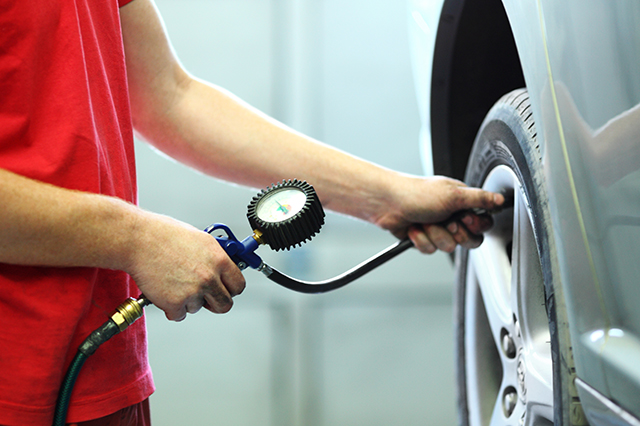
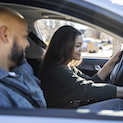

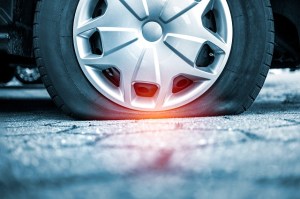

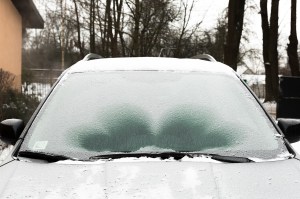



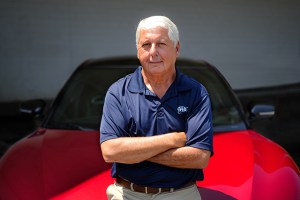
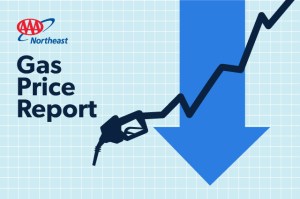

My brother owns a German car, and since he’s going on a trip by car with his partner soon, he needs to get maintenance repairs done first before they leave. it was a helpful reminder when you told us to keep tabs on our fluid levels since not maintaining proper coolant and oil levels can lead to a lot of issues, including major engine damage. I’ll keep this in mind while I look for an auto repair shop nearby that has worked on German cars before to recommend to my brother.
Ok, so here’s a silly question…I know the difference between aligning and balancing the wheels, but what always confuses me is… should I do one or both when my tires are rotated?
Hi Maria, thanks for the question! Here’s an answer from our Car Doctor, John Paul: No silly questions. Balancing gives the car a smooth ride with no vibrations, alignment keeps the wheels straight and minimizes tire wear and can improve handling. If the tires are wearing smoothly and the car is free of any vibrations at highway speed, neither may be needed. In my own vehicles, I will usually have the alignment checked if it has been a particularly bad pothole season. I will have the tire balanced if I feel a vibration. So the answer is if all seems good, just rotate the tires.
I feel ignorance is the worst mistake, if you are ignorant, you can be as careless as it can be not only with cars but anything!
I have a 2011 Mazda 6 that just hit 90,000 miles. I still have the original timing belt however I’m getting nervous that it will “go” when I’m driving to my daughter who is 150 miles away. Is there anything a mechanic can see that can give me insight as to its condition? I’d rather be safe then angst & nervous
Thank you. By the way I’m an avid reader of J Paul’s articles
Hi Patti, thanks for the question. Here’s John Paul’s answer: What is nice about the engines in this year’s Mazda 6 (both 4 and 6 cylinders) is both engines use a timing chain as opposed to a rubber timing belt. If the car is maintained correctly (oil changes etc) there is no reason to think the timing chain will not last the life of the car.
These are all useful tips for owners of gas-driven cars. But, gas-driven cars will, thankfully, soon be obsolete. How about providing a similar list for the electric cars that will soon be the norm? (They are already the majority of cars being bought in China and rapidly increasing in Europe.)
Electric vehicles do sound wonderful. Some things to consider, how is the electricity made? Solar or with power plants that use fossil fuels or natural gas. Can the electric grid sustain this additional usage? Are the batteries recyclable? The cost of electric vehicles will be more that traditional gas cars as far as the overall life of the vehicle but it will hopefully help the environment.
A very important Fact that Few Know is that the newer cars with the automatic “Daylight Running Lights” are controlled by a Sensor on the Dash which may-or-may-Not be accurately set or calibrated. Yet we “Trust it”. – But That’s not the Problem. The actual problem is that your TAIL LIGHTS are NOT ON while this feature is employed!
You think you’re ok at dusk and dawn and in rain and fog etc. when you have these lights on. Cool, maybe someone can see you in their mirror, But you’re Invisible from behind! No TAIL LIGHTS! Sometimes sensors will stay in “Daylight” mode at times when they should Switch to Night/Headlights Mode. I don’t know how to Fix a sensor, but I DO know that you have no Tail Lights in these circumstances. Look at your dash indicator to see WHICH light MODE is on, and Change it if you know your Tail Lights SHOULD be ON! I’m surely glad someone told ME! It’s not in the manual, but should be!
You’re right. The problem is the dash lights are on all the time, so with the DRLs on that look like your headlights are on from inside the car, the tail lights are not on until you turn on the headlights.
I’ve always been in the habit to put my lights on , even now with the automatic day time running lights, whenever it isn’t sunny. It makes me more visible.
Should I get snow tires on a 2018 Toyota Corolla that I bought in July 2021 with new tires on it ? 44000 miles when bought!
Hi Steve, thanks for the question. Here’s an answer from our Car Doctor, John Paul: Winter tires will always perform better than all season tires. They provide more traction for both starting off and stopping. Also, due to the rubber composition, they perform better in cold. The all season tires will be okay in a few inches of snow, but won’t perform like a winter tire. Depending on your driving — if you go out before the snow plows — four winter tires are best.
You say biggest misconception is the max tire pressure on the tire is the manufacture recommended tire pressure. Real pressure is on the tire placard. You need to explain. It was put on the tire by the tire manufacturer. Do they not know their own product?
The tire pressure on the door jamb sticker is the recommended pressure by the car manufacturer, taking into consideration ride, handling, wear etc. The tire pressure embossed on the tire sidewall is the maximum (not recommended) pressure the tire manufacturer says the tire will handle.
My car has a placard on the driver’s door frame and one on the fuel filler door. Very different pressures. Which are accurate?
Hi Maureen, thanks for the question. Here’s an answer from our Car Doctor John Paul: The driver’s door placard is where I would always look from the most accurate tire inflation information.
With most engines and transmissions made of aluminum what do you recomend for corrosion under the hood ?
Hi William, thanks for the question. Here’s an answer from our Car Doctor, John Paul: Interesting question, we have been using aluminum for a very long time with generally very good results. Oxidation is due to reactions of oxygen and the aluminum and then aluminum oxide forms a whitish surface coating or spots. This whitish surface actually is where the materials bond to the aluminum. This almost acts like a sealant protecting the aluminum. Brush off the white material and the process starts over again. Adding salt to the mix can actually cause corrosion and the best thing you can do is rinse off the affected components. In reality you can’t do much about aluminum oxidation. Powder coating, painting and other anti-oxidation products can help, but in my opinion except under very specific circumstances these measures are not necessary.
If you bought very different, more durable tires for your car that recommend a higher tire pressure, should you use the new tire pressure?
Hi Lori, thanks for the question. Here’s an answer from our Car Doctor, John Paul: I prefer to use the tires and sizes designed for my car. Changing tire sizes and designs changes the engineering of the vehicle. Yes, people do it all the time with performance cars and trucks, but there is a tradeoff. In these cases, drivers may want better handling or increased traction and are willing to sacrifice ride and even fuel economy. To answer your original question, if the tire is the same size you should use the tire pressure on the vehicle’s driver’s door placard.
I have two plug-in hybrids. Because of the electric motor, fuel engine does not run that often. I have been careful to make sure the gasoline is treated since it sits a long time in the tank. Are there any other steps to take to make sure the internal combustion engine is properly cared for?
Hi Richard, thanks for the question. Here’s an answer from our Car Doctor, John Paul: In addition to normal maintenance (tire rotation, brake checks, etc.), if I owned a plugin hybrid I would change the oil as recommend by the vehicle manufacturer (usually annually), follow the recommendations for checking and maintaining engine coolant, test the 12-volt battery and add fuel stabilizer to prevent the fuel from becoming stale. In this case, you have to look at the car and the internal combustion engine separately.
I hear a loud fringing or scraping originally I thought right front wheel the slower the speed the louder it seem I had service done on my car and they said the wheel was fine it’s a 2014 equinox
Hi Maureen, thanks for the question. Here’s an answer from our Car Doctor, John Paul: There are many possibilities, a brake sensor starting to alert you that it is time for brakes, a bearing or seal, or even an axle joint. At this point you need to both demonstrate the issue to a technician so they hear what you hear. If the noise is intermittent check the brakes and steering components to at least confirm that the car is safe. Whenever possible, note when and how the noise happens, even recording it if possible.
no comment
Why do I need a diagnostic report when a certain light is on on my dash that the mechanic knows what that light is?
why don’t it tell you what that light means when it comes on ## you should not need a code reader
Thank you!
Besides engine coolant, engine oil should be mentioned as very important !!
Oil levels were mentioned in:
What’s the most common mistake people make in regards to keeping their car in good shape?
The most common car maintenance mistake I notice is drivers failing to keep the correct fluid levels in their vehicles. At least once a day we see a vehicle with low coolant or engine oil that does not register on the dipstick. Major engine damage can occur if proper coolant and oil levels are not maintained.